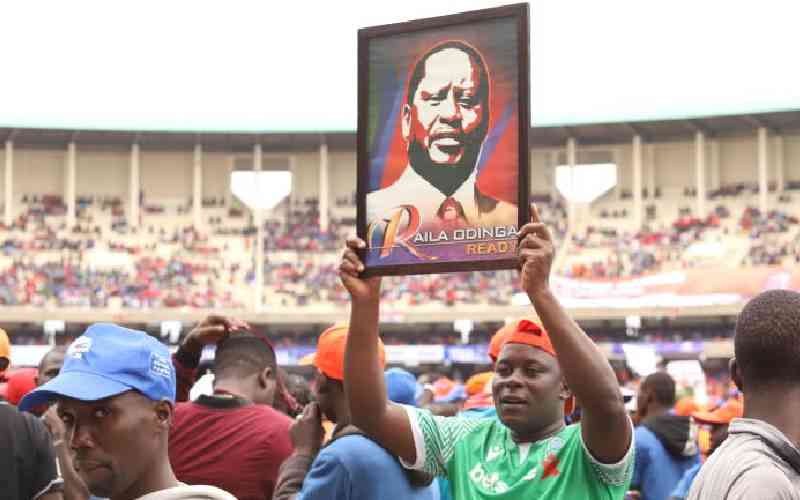
Today marks either the beginning of Azimio presidential candidate Raila Odinga's celebration as the country's fifth president, or an end to his long-held dream of ruling Kenya.
Except for 1997, when he made his debut in the presidential race, Raila has always staged an electrifying campaign bid, losing under controversial circumstances in 2007. In 2013, he unsuccessfully petitioned his loss but was successful in 2017. He however boycotted the repeat poll directed by the Supreme Court, claiming the electoral body had not complied with court directives enabling it to be a fair arbiter.